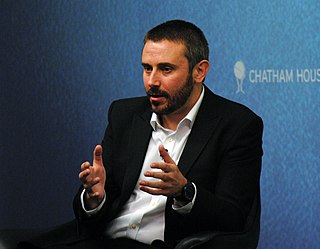A Quote by Edward Snowden
I don't think there's anything, any threat out there today that anyone can point to, that justifies placing an entire population under mass surveillance.
Related Quotes
I think that when you have any folks in our population who live under the threat of violence, who live under the threat of crime, who don't have the opportunity that others have because the schools in our urban areas are a dreaded failure, because of the positions that Hillary Clinton has taken and the people who support her, that I think any candidate should speak out to say that that type of thing is unacceptable.
Internet exchanges and internet service providers - international fiber optic landing points - these are the key tools that governments go after in order to enable their programs of mass surveillance. If they want to be able to watch the entire population of a country instead of a single individual, you have to go after those bulk interchanges.
With communication technology in general, there's a kind of certain critical mass of people. Once you get to 15% of the world's entire population using one communication technology, that's a big deal. It's beyond the theoretical at this point. The people who think it's a fad have probably not been paying that much attention.
No matter the specific techniques involved, historically mass surveillance has had several constant attributes. Initially, it is always the country’s dissidents and marginalized who bear the brunt of the surveillance, leading those who support the government or are merely apathetic to mistakenly believe they are immune. And history shows that the mere existence of a mass surveillance apparatus, regardless of how it is used, is in itself sufficient to stifle dissent. A citizenry that is aware of always being watched quickly becomes a compliant and fearful one.

































